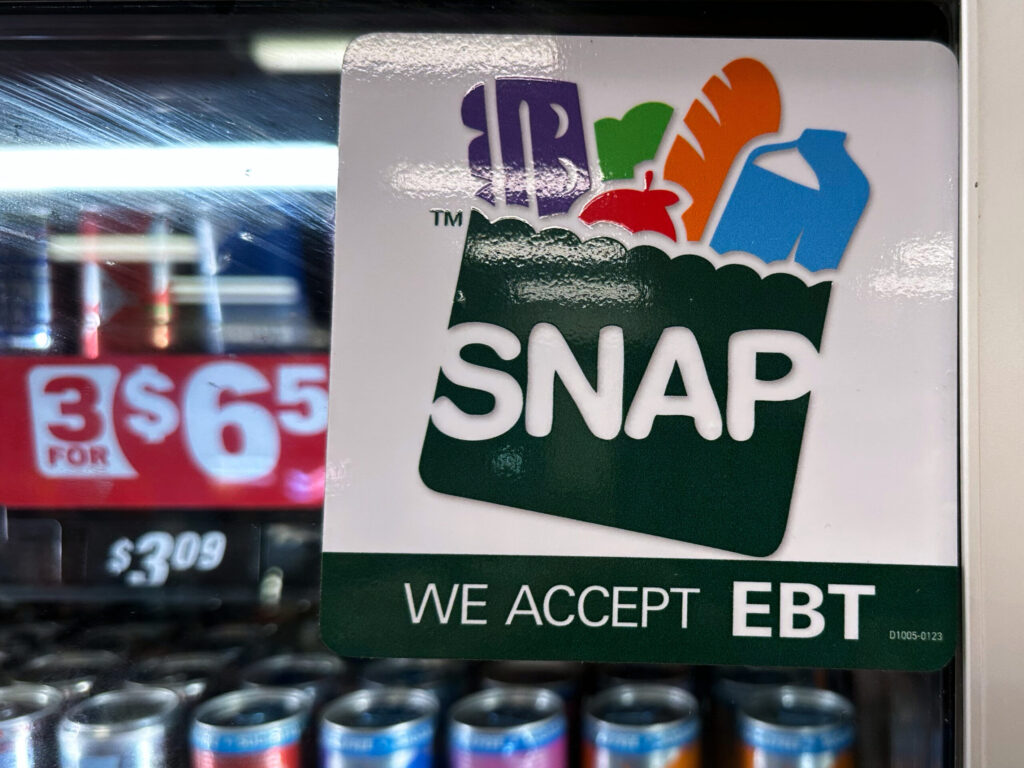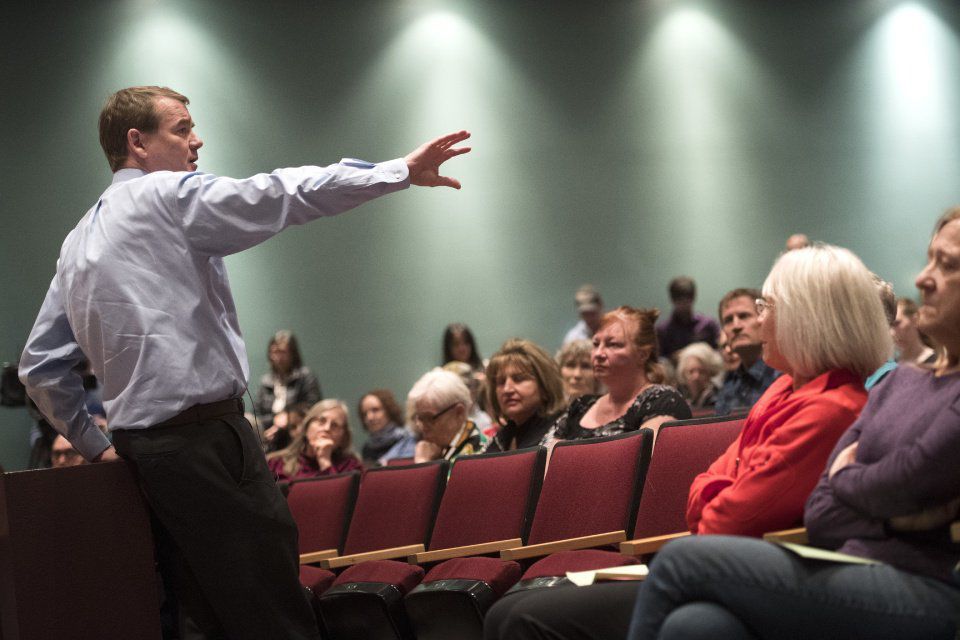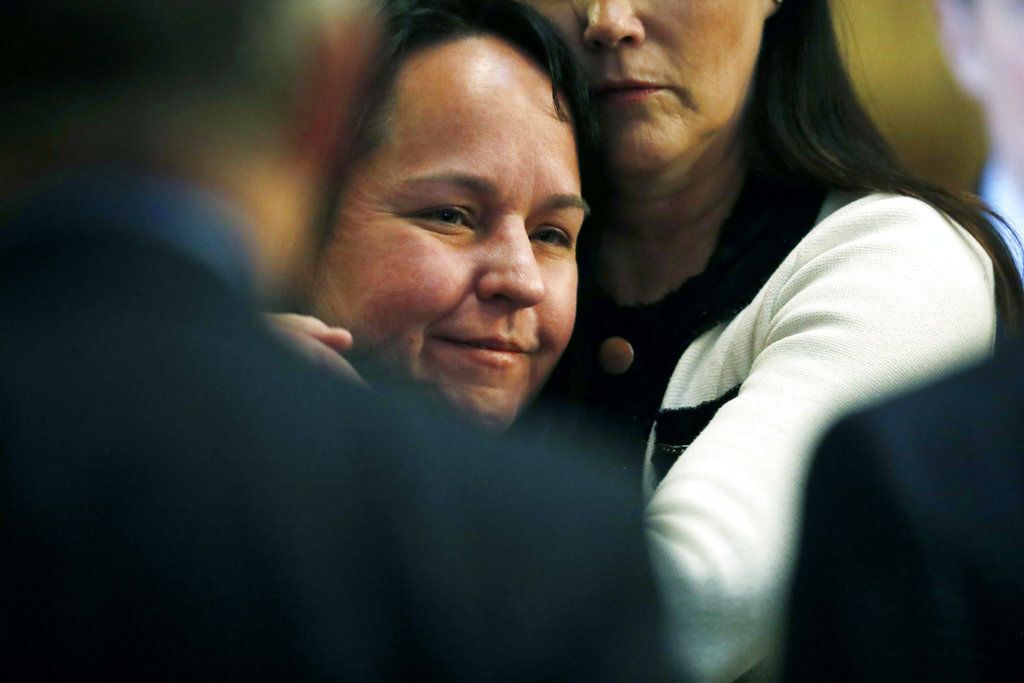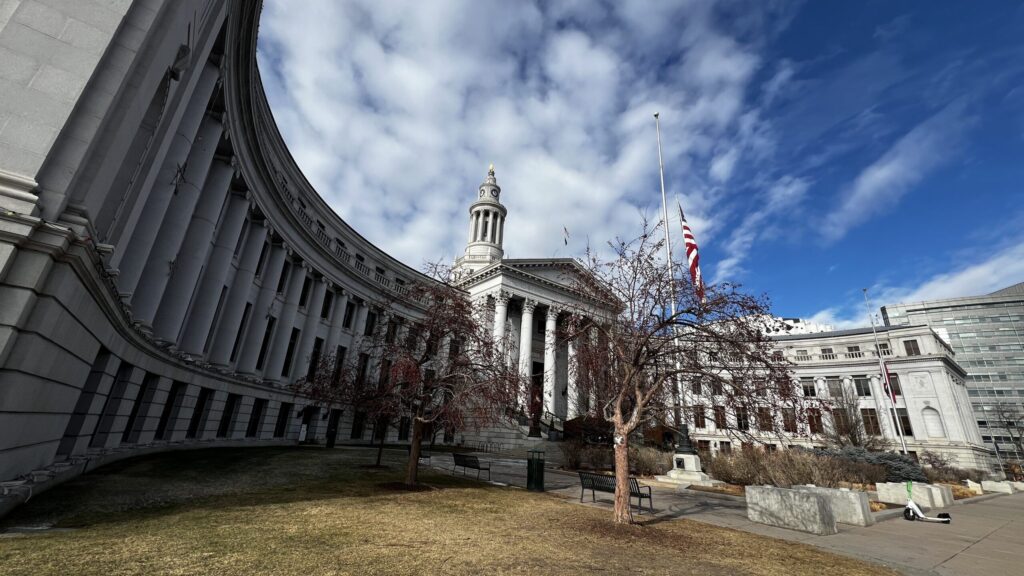VIDEO: Dems reignite battle over immigrant drivers licenses
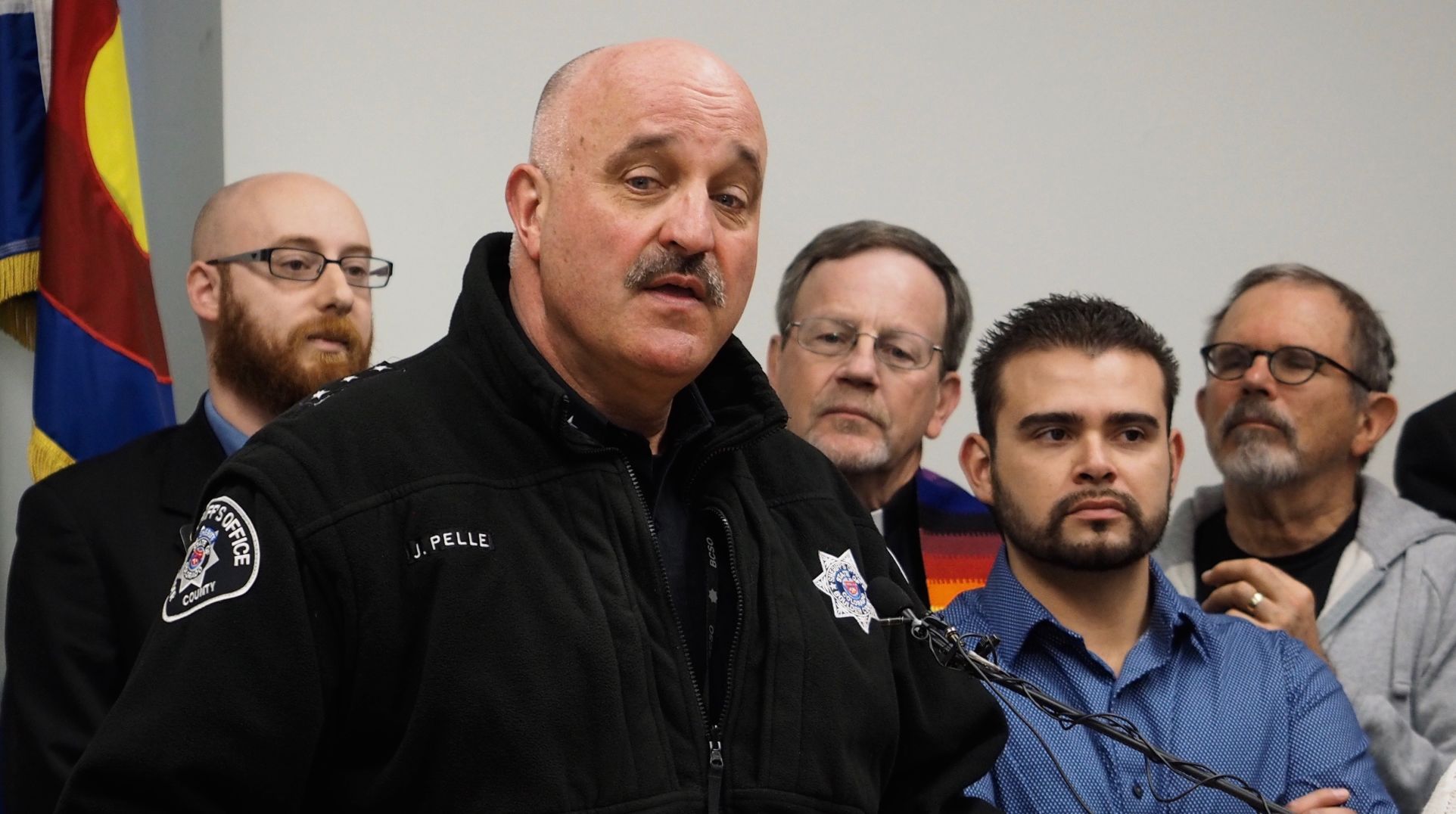
Launching what is sure to be a heated round of election-year debate, Democratic lawmakers announced Wednesday that they would be introducing two new bills in the coming weeks to rescue a 2-year-old program that provides driver’s licenses to undocumented immigrants in the state. The program was hobbled by Republicans who opposed the plan when it was first introduced and later held back the funding the program generates to function smoothly.
At a news conference held in a crowded committee room, Rep. Jonathan Singer, D-Longmont, said he would introduce a bill that would free up the money needed to fully fund the program. Sen. Jessie Ulibarri, D-Westminster, said he would introduce a bill to address abuses that have grown up around the cash-starved program, which has seen “appointment scalpers” hoard a portion of the precious few appointment slots now allotted to interested undocumented drivers and then sell them at a premium.
In 2013, Senate Bill 251, sponsored by Ulibarri, allowed undocumented immigrant residents of the state for the first time to legally apply for driver’s licenses. The Colorado Road and Community Safety Act (CO-RCSA) program was funded through increased fees for the special-class licenses, nearly $80 for a license and $50 for an instruction permit.
But the program faced funding challenges despite the direct fee-based structure.
“The Department of Revenue and the Division of Motor Vehicles have both recognized that they severely underestimated both the demand and need for the program, and so their initial cost estimate wasn’t correct,” said Ulibarri Wednesday.
SB 251 hit another hurdle in 2015 when Republicans on the Joint Budget Committee blocked the program from using $166,000 in fees collected from applicants. The move reduced the number of participating DMV offices to three, one each in Denver, Colorado Springs and Grand Junction.
Now that fee-money remains trapped in a political no-mans land.
“(The money) could be going to actually open more driver’s license offices and getting more people through the pipeline and more people out of the shadows,” Singer said. “That’s the most frustrating part of this, knowing that we’ve got money in the bank ready for this to go that the taxpayers haven’t subsidized.”
“You can’t touch it, so more or less, it’s just sort of sitting there.”
The conference was attended by immigrants and immigrant advocates who spoke about their experience with the program, their frustrations with the way it has been realized. One woman said her husband has been waiting two years for a DMV appointment.
“The selling of appointments is a consequence of a system that has failed to fulfill the promise of SB 251,” said Aleida Ramirez, leader of community organization Together Colorado, speaking through a translator.
But it’s unclear what has changed at the Capitol that could free up the money for the program. The balance of power on the Joint Budget Committee hasn’t changed. And in a presidential election year where immigration policy is likely to figure prominently in campaign messaging, Republican constituents are likely to continue to see the license program as an unfair giveaway to residents who have broken the country’s laws and as a form of unearned official acceptance of their status as de facto Coloradans.
Singer said that the program isn’t designed simply for the benefit of the undocumented residents. He said all Coloradans would benefit from universally properly trained and licensed drivers.
“I want to know that the people driving next to me know the same rules that I do,” Singer said. “Especially when you come from another country, road signs might look different, the markings on the road or on the street may look different.”
Boulder County Sheriff Joe Pelle said dealing with licensed drivers on the road is just safer for everyone.
“Making traffic contacts for even minor violations, we (officers) would much prefer to be dealing with a driver who has state-issued identification, who we can be comfortable that this is the person, this is their ID, this is issued by the state, and it keeps minor infractions from becoming major issues.”
Singer called the political impasse infuriating.
“Why you would let a pot of money just sit there when you could be getting more people out of the shadows and guaranteeing better safety on the road?”
Ulibarri called it disappointing.
“When you pay for a service in Colorado, you should be able to receive that service,” he said.




